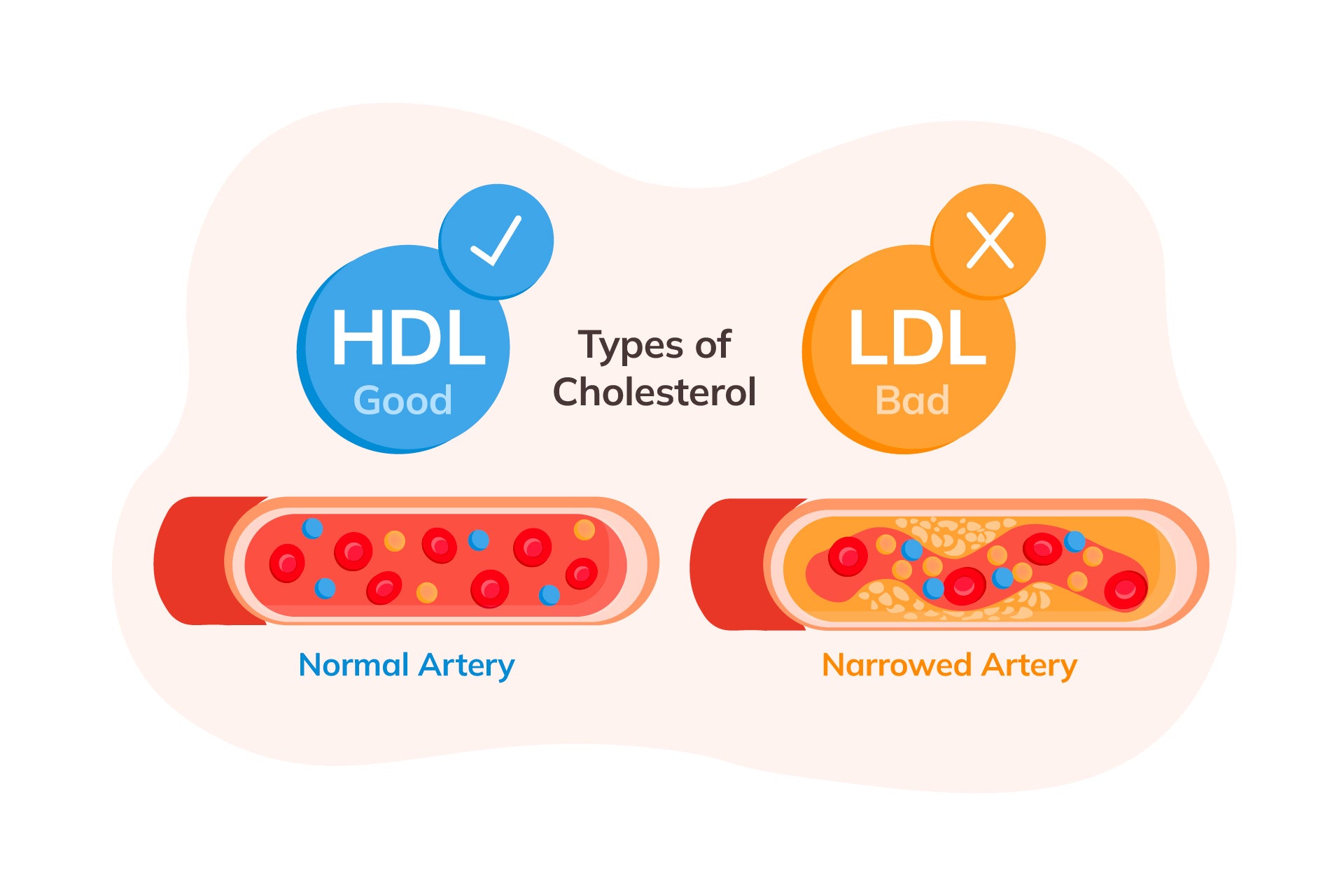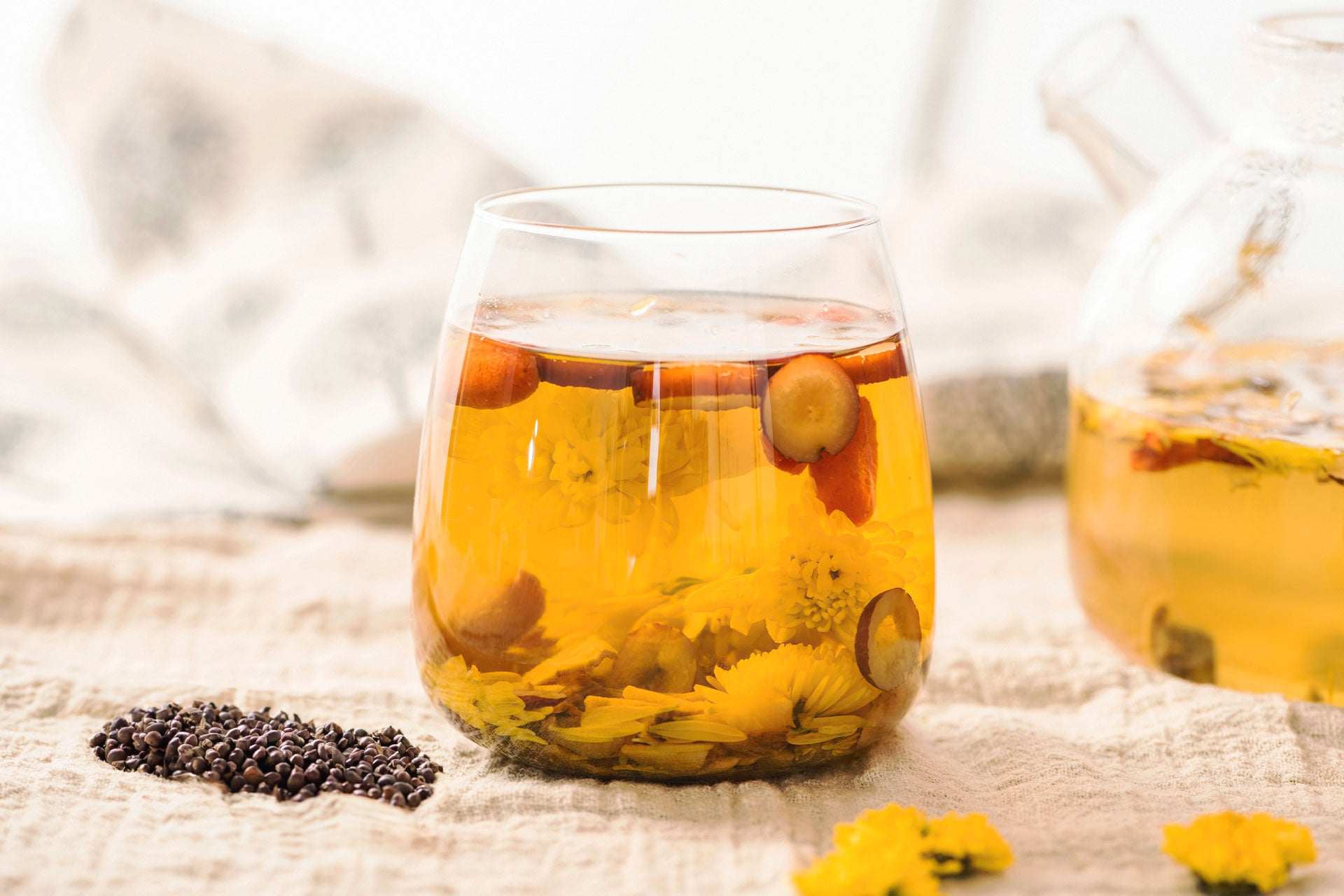TCM-Inspired Tips on How To Reduce and Manage Cholesterol
4 min read
·
By Wing Joo Loong Team
Key Takeaways
- High blood cholesterol is a common health concern that increases the risk of cardiovascular diseases such as heart attacks or stroke.
- However, not all cholesterol is bad. High-density lipoprotein (HDL) functions as “good” cholesterol, transporting excess cholesterol back to the liver for removal.
- Besides adopting healthy lifestyle habits, you can lower and manage cholesterol levels by incorporating natural TCM herbs, such as hawthorn, chrysanthemum and cassia seeds, into your diet.
High blood cholesterol, or hyperlipidemia, is a common concern in Singapore, being one of the ‘3-highs’ alongside high blood sugar (diabetes) and high blood pressure.
Having high cholesterol increases the risk of cardiovascular diseases, such as heart attacks or stroke. The good news is there are ways to improve our blood cholesterol - read on to learn more about cholesterol and get TCM-inspired tips for maintaining healthy cholesterol levels.
What Is Cholesterol and How Does It Impact Our Health?

Cholesterol is a waxy, fatty substance found in our blood. It is naturally produced by the liver and can be obtained from the food we eat. Cholesterol is not wholly bad for you; in fact, good cholesterol serves an essential role in building cell membranes and hormones.
Understanding Good (HDL) vs Bad Cholesterol (LDL)
Low-density lipoprotein (LDL), often termed as the “bad” cholesterol, can build up on the artery walls, leading to blockages that impede blood flow. As the blood flow narrows and stagnates, it poses a risk for cardiovascular diseases in serious cases.
Conversely, high-density lipoprotein (HDL) functions as “good” cholesterol, transporting excess cholesterol back to the liver for removal. It is difficult to spot symptoms of high cholesterol, which is why it is known as a silent killer. Thus, the Health Promotion Board advises adults to check their blood lipids at least once every three years.
What Affects Your Cholesterol Levels?
Besides hereditary factors, aging and chronic conditions like diabetes, various unhealthy lifestyle habits can contribute to increased cholesterol levels:
- Unhealthy and irregular diet, such as overeating fried foods
- Smoking
- Excessive alcohol intake
- Lack of exercise
In Traditional Chinese Medicine (TCM), high cholesterol is often associated with the imbalances of the stomach, spleen and liver as well as accumulation of phlegm and dampness in the body.
Natural Goodness To Support Your Cholesterol
The information above serves as a general guide only. Please consult a certified TCM practitioner for a more accurate diagnosis and treatment.
TCM-Inspired Tips for Healthy Cholesterol Levels

Now that we understand the key causes, we can introduce healthy lifestyle habits to change things around.
Practice Mindful Eating and Opt for Balanced Meals
Limit the intake of foods high in saturated fats, such as processed meats, fast food, deep-fried items and baked goods, and opt for unsaturated fats. Think olive oil, avocados and nuts.
When balancing your meals, consider foods that can support the spleen and digestive health. Chinese yam is one good superfood, alongside whole grains and vegetables. Cut down on foods that can contribute to dampness accumulation, such as sweets and cold and raw foods like cakes, ice cream and sashimi.
Say No to Smoking and Excessive Drinking
Kick the smoking habit, as the nicotine in your smokes can lower HDL while increasing LDL.[1]
Drinking too much might bring weight gain and increase your triglyceride - another blood lipid. Healthhub suggests an average of two standard drinks a day for men and one for women, equivalent to about a can of beer or half a glass of wine.
Transiting to an Active Lifestyle
Regular physical activity plays a part in regulating lipid metabolism and keeping our weight in check:
- 150-300 minutes of moderate-intensity exercises a week: brisk walking, cycling and hiking, or
- 75 minutes of vigorous activity a week: running, swimming or football
Nourish With Natural TCM Herbs To Reduce LDL
Hawthorn, lotus leaves, salvia root (danshen) and rhubarb root are some of the natural remedies to aid in lowering LDL. Chrysanthemum and cassia seeds are two other herbs that support liver function. Hawthorn and chrysanthemum tea can soothe indigestion, strengthen the spleen and liver, and clear heat and toxins. It is suited for individuals with high cholesterol.
Another simple recipe is to infuse 2 tablespoons of cassia seeds, chrysanthemum and wolfberries each in 500ml of hot water for 10 minutes. If you are looking for more options, here are 3 other cassia seed tea recipes.
For a convenient option, supplements such as the GoodBase pomegranate with Korean red ginseng pouches can regulate blood cholesterol; the high antioxidant properties of pomegranate combined with the blood circulation-boosting function of the Korean red ginseng can support cardiovascular health.
Social With Us
Get more inspiration on your wellness journey with bite-size info on our Instagram, Facebook, TikTok or Xiaohongshu.
The information above serves as a general guide only. Please consult a certified TCM practitioner should you require advice tailored to your specific health needs and concerns.
The information above serves as a general guide only. Please consult a certified TCM practitioner for a more accurate diagnosis and treatment.
Subscribe to our latest news and
exclusive promotions!
Subscribe to our latest news and
exclusive promotions!
Subscribe to our latest news and exclusive promotions!
Women's Health
Uterus Health
Pain Management
You may also like
JOIN OUR MAILING LIST
Get wellness tips and the inside scoop
on new launches and deals!

© 2025 Wing Joo Loong

